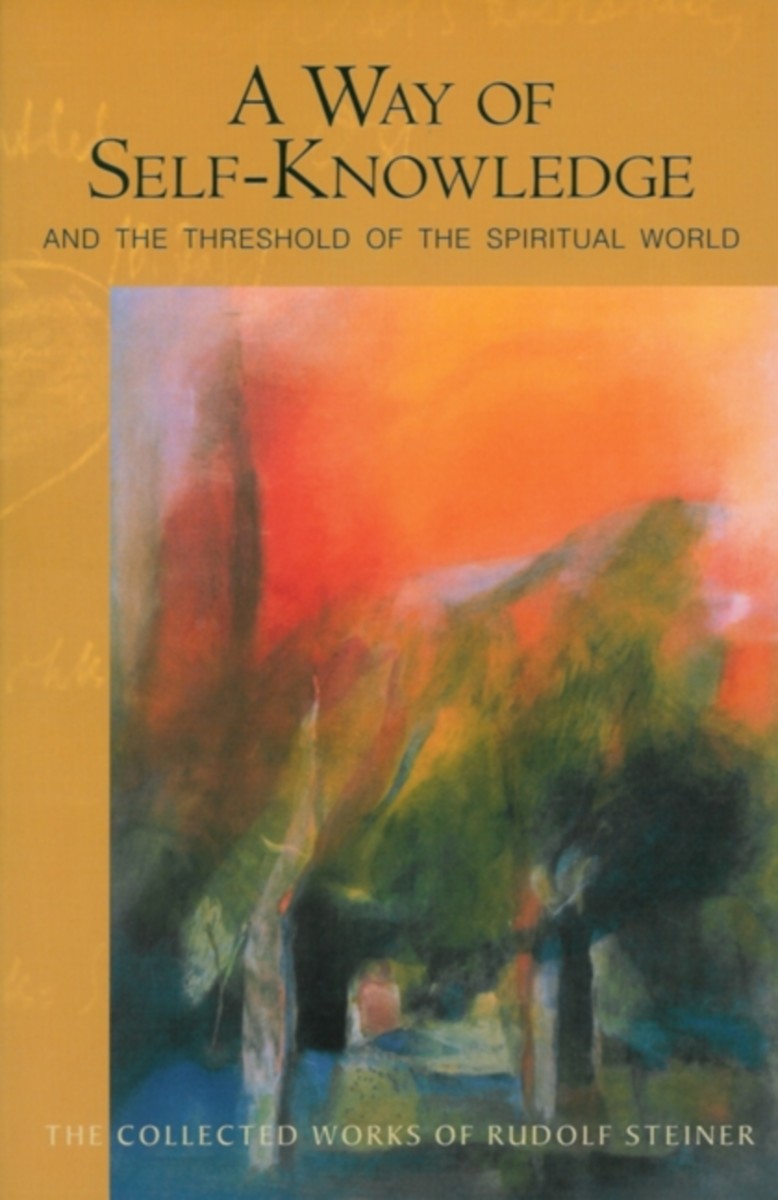Rudolf Steiner Bookshop
A Way of Self Knowledge
A Way of Self Knowledge
Pickup available at Rudolf Steiner Bookshop.
Usually ready in 1 hour
A Way of Self-Knowledge: And The Threshold of the Spiritual World: 16 (The Collected Works of Rudolf Steiner)
Rudolf Steiner (author)
Translated by Robert Lathe, Nicola Whittaker, Christopher Bamford
I hope that reading this book can become a kind of inner conversation. If this conversation unfolds in such a way that it reveals the hidden inner forces that can be awakened in every soul, then reading this book may lead to genu?ine, inner soul work. As a result you may find yourself gradually impelled to undertake that journey of the soul which truly leads to vision of the spiritual world.
Part one, "A Way of Self-Knowledge," contains eight meditations that take the reader on a journey through human experience. Beginning with ordinary experience, Steiner offers ways to imagine and understand the physical body, the elemental (or etheric) body, the elemental world, the Guardian of the Threshold, the astral body, the I-body (or thought body), the nature of experience in suprasensory worlds, and ways of perceiving previous earthly lives.
Part two, "The Threshold of the Spiritual World," contains sixteen short chapters in which Steiner provides aphoristic thoughts on trusting one's thinking' cognition of the spiritual world' karma and reincarnation' the astral body and luciferic beings' how to recognize suprasensory consciousness; the true nature of love; and more.
These two complete books together represent Steiner's most personal statements about his own spiritual path. He speaks directly from experiences of cognitive research and explorations. Each of the meditations and aphorisms arises from his spiritual research and demonstrates how such spiritual research is to be undertaken. The "content" is Steiner's own, but readers can discover their own "content." Steiner's method of awareness - his path of attention to one's own experience - is universal and truly human.
A Way of Self-Knowledge is the true sequel and complement to the classic of inner development, How to Know Higher Worlds. It lays out in a way that is accessible to anyone the road to self-knowledge and to the world of spirit.
Rudolf Steiner (b. Rudolf Joseph Lorenz Steiner, 1861-1925) was born in the small village of Kraljevec, Austro-Hungarian Empire (now in Croatia), where he grew up. As a young man, he lived in Weimar and Berlin, where he became a well-published scientific, literary, and philosophical scholar, known especially for his work with Goethe's scientific writings. At the beginning of the twentieth century, he began to develop his early philosophical principles into an approach to systematic research into psychological and spiritual phenomena. Formally beginning his spiritual teaching career under the auspices of the Theosophical Society, Steiner came to use the term Anthroposophy (and spiritual science) for his philosophy, spiritual research, and findings. The influence of Steiner's multifaceted genius has led to innovative and holistic approaches in medicine, various therapies, philosophy, religious renewal, Waldorf education, education for special needs, threefold economics, biodynamic agriculture, Goethean science, architecture, and the arts of drama, speech, and eurythmy. In 1924, Rudolf Steiner founded the General Anthroposophical Society, which today has branches throughout the world. He died in Dornach, Switzerland.
A Way of Self-Knowledge: And the Threshold of the Spiritual Worldis a translation of «Ein Weg zur Selbsterkenntnis des Menschen: In acht Meditationen» (GA 16) and «Die Schwelle dre geistigen Welt: Aphoristische Ausführungen» (GA 17)
Publisher : SteinerBooks, Inc; New edition (1 May 1999)
Paperback : 208 pages
ISBN-13 : 9780880104432
Dimensions : 15.14 x 1.52 x 23.57 cm

